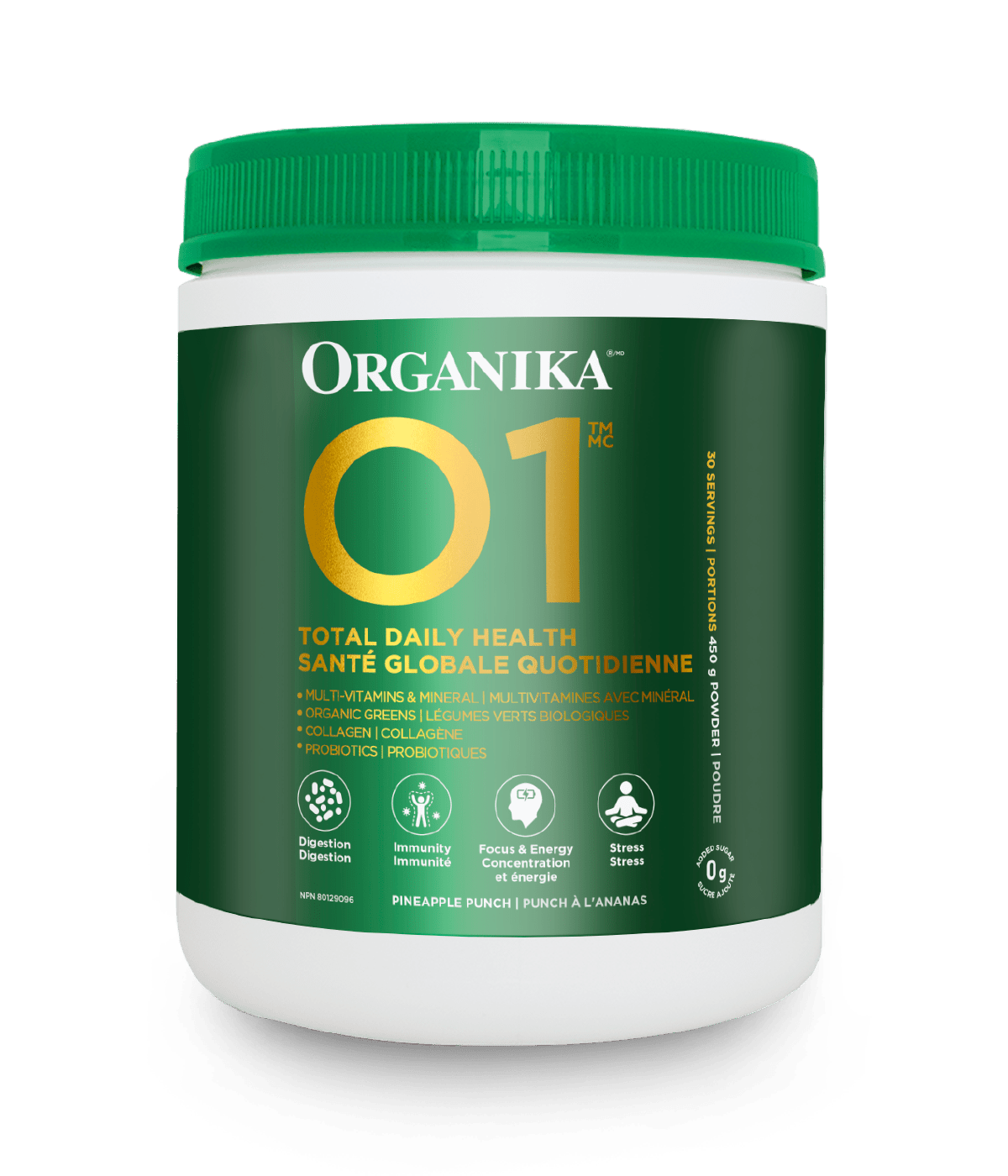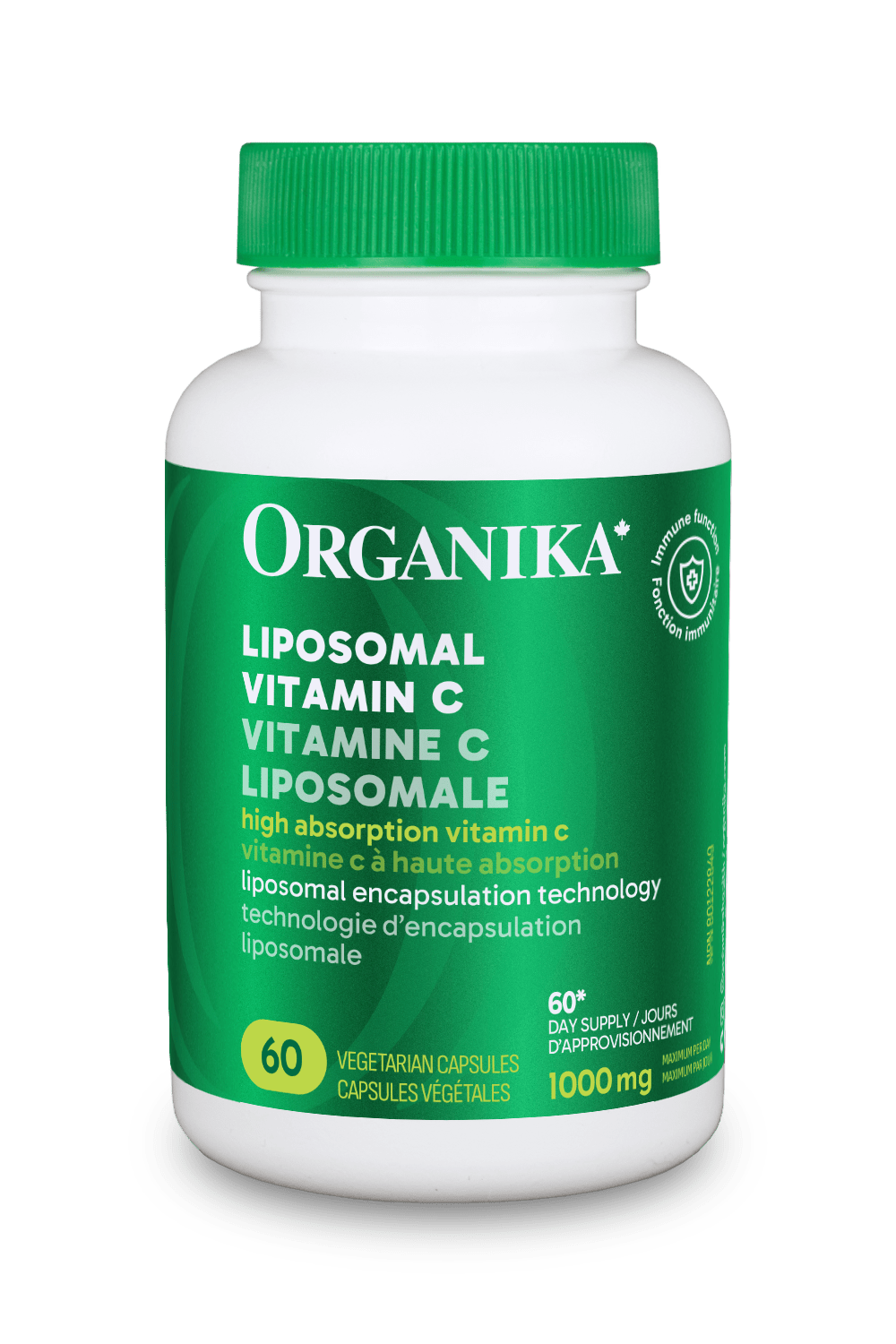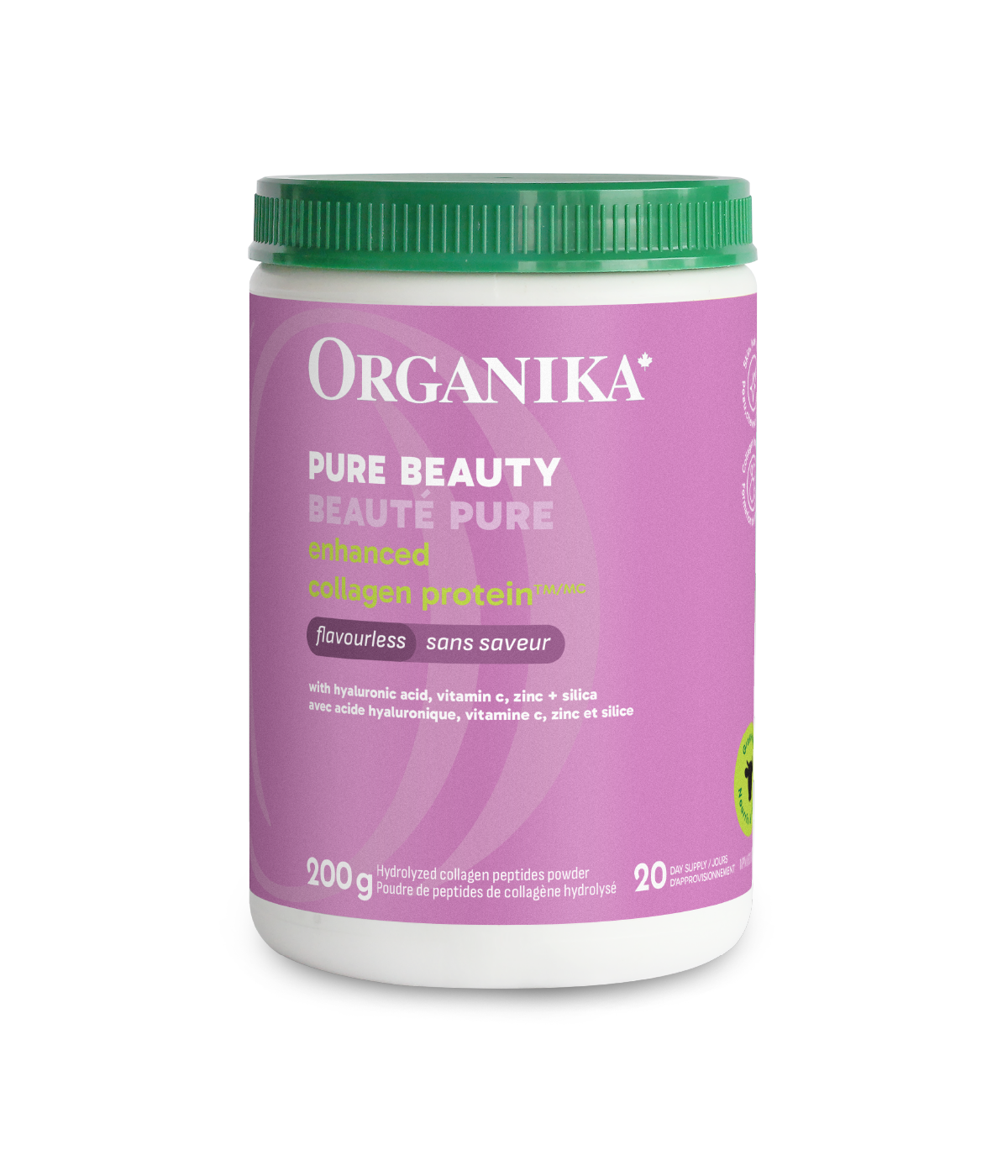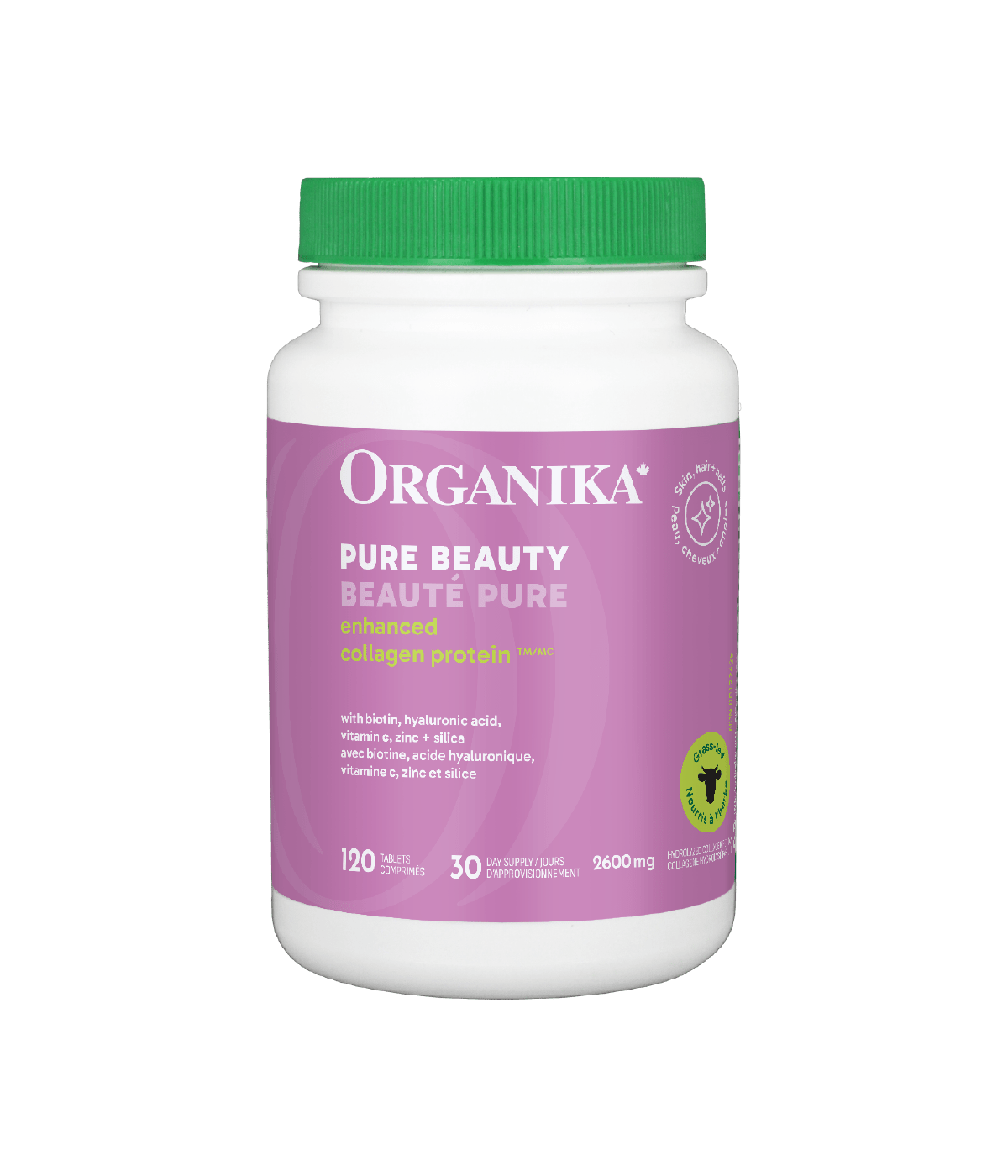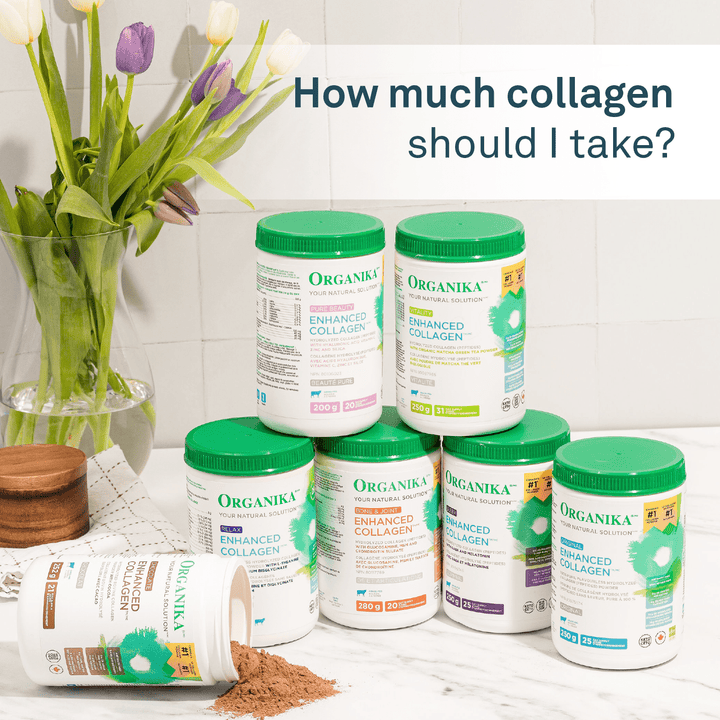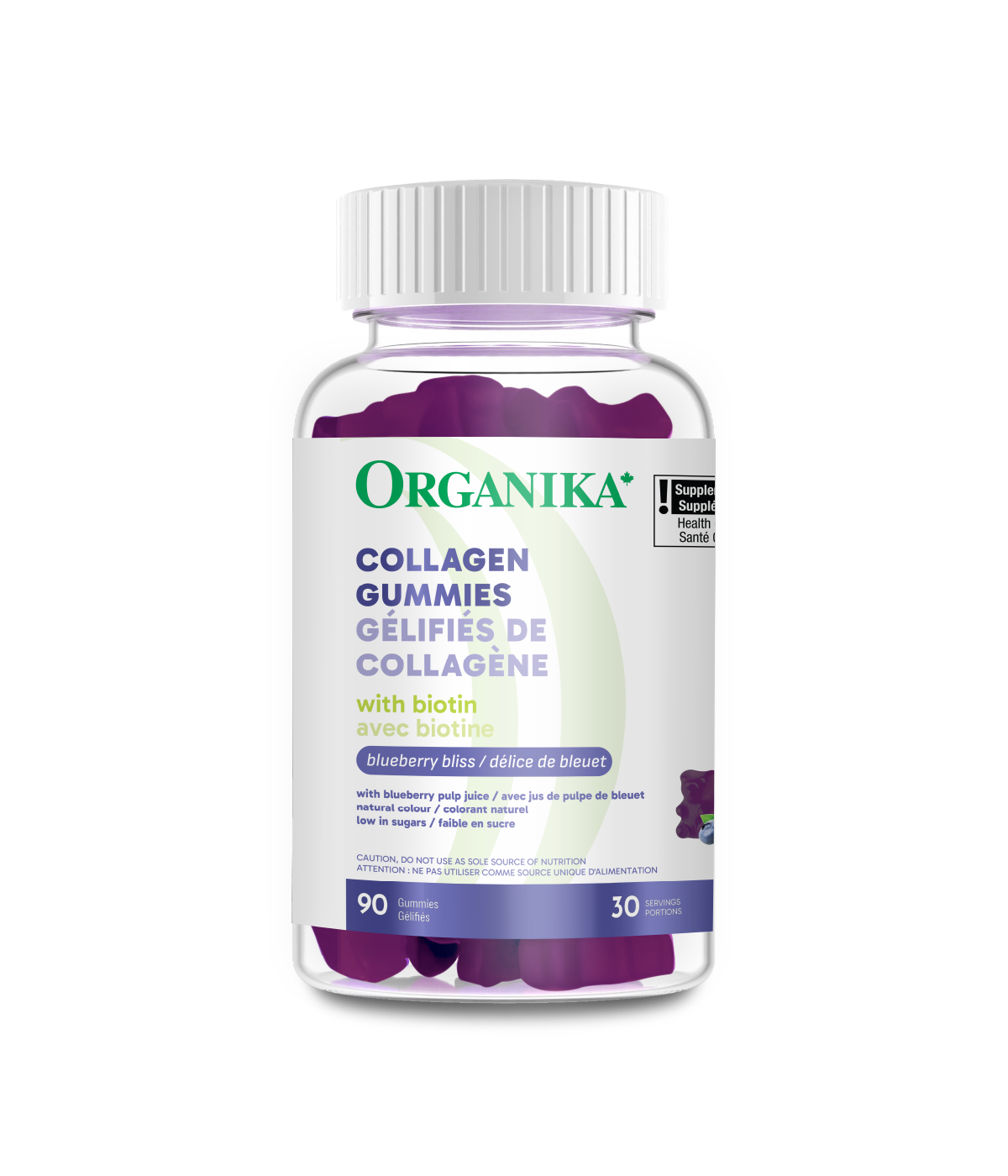
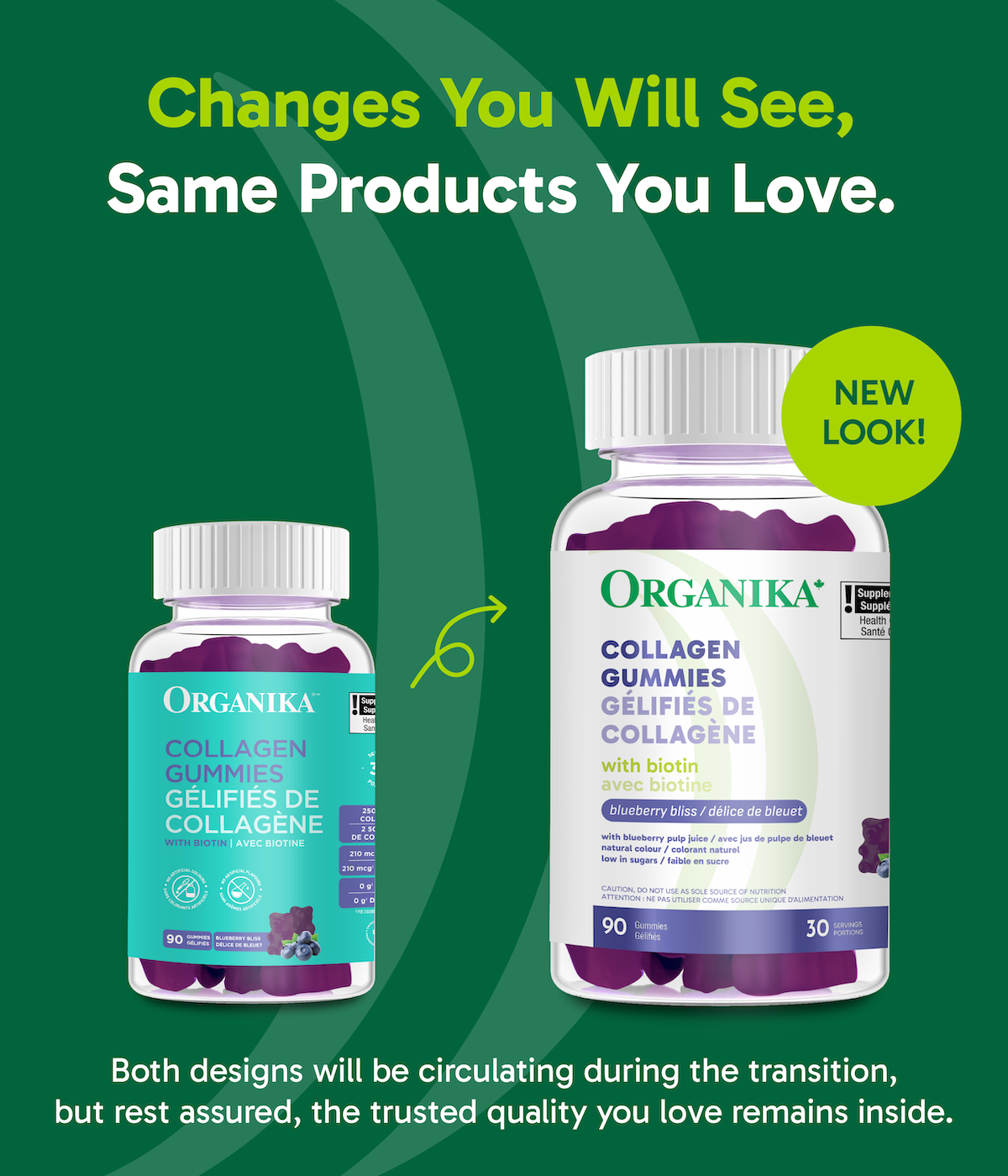
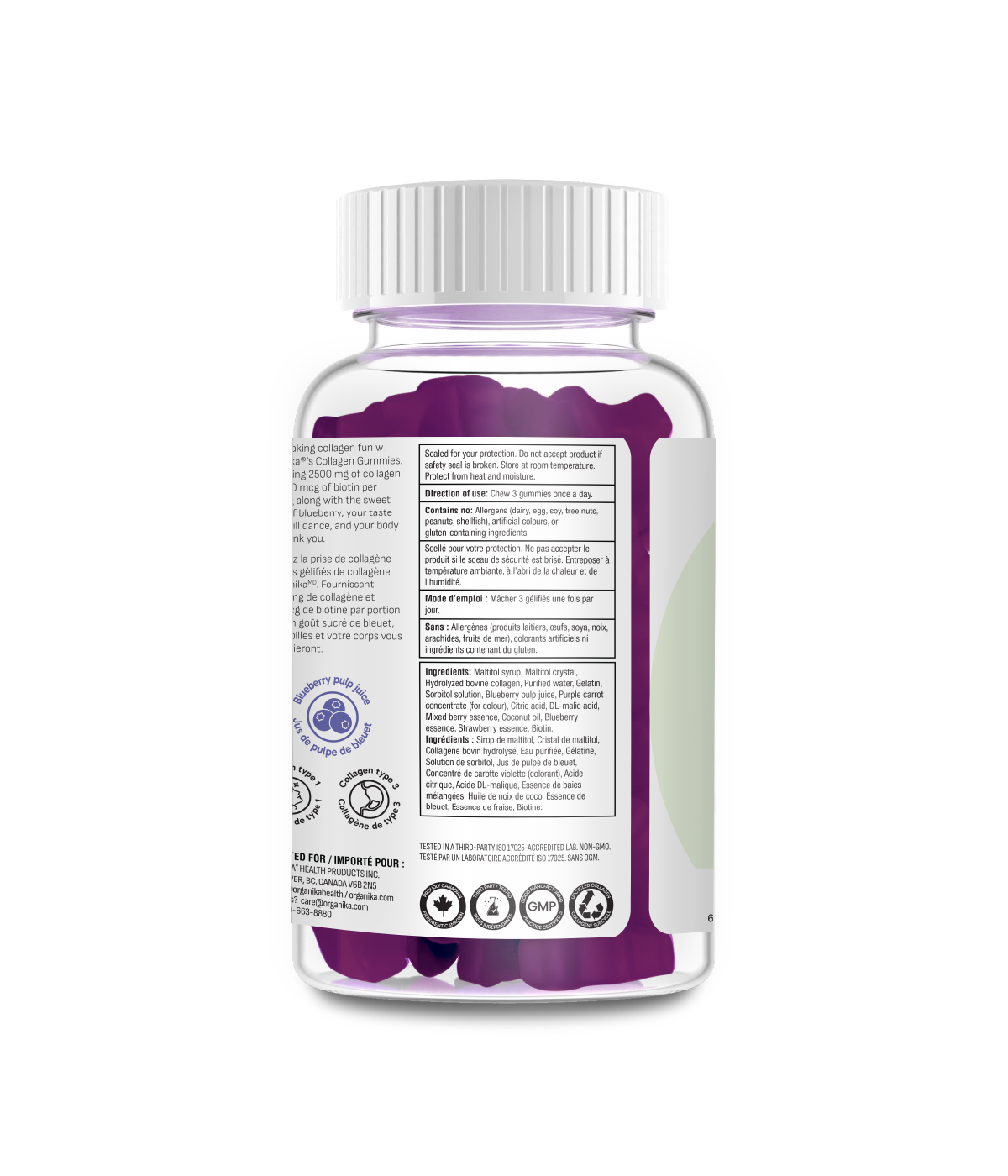
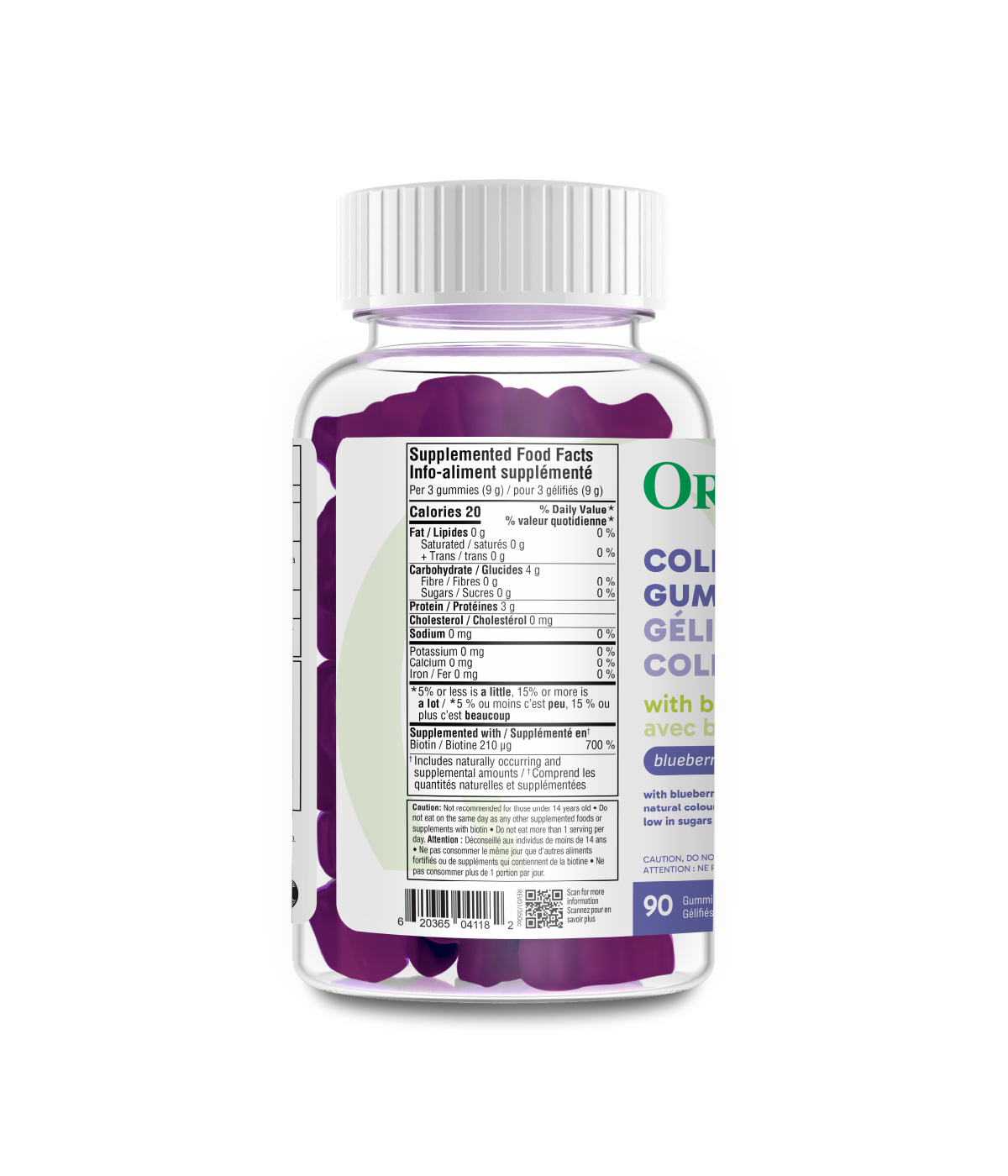
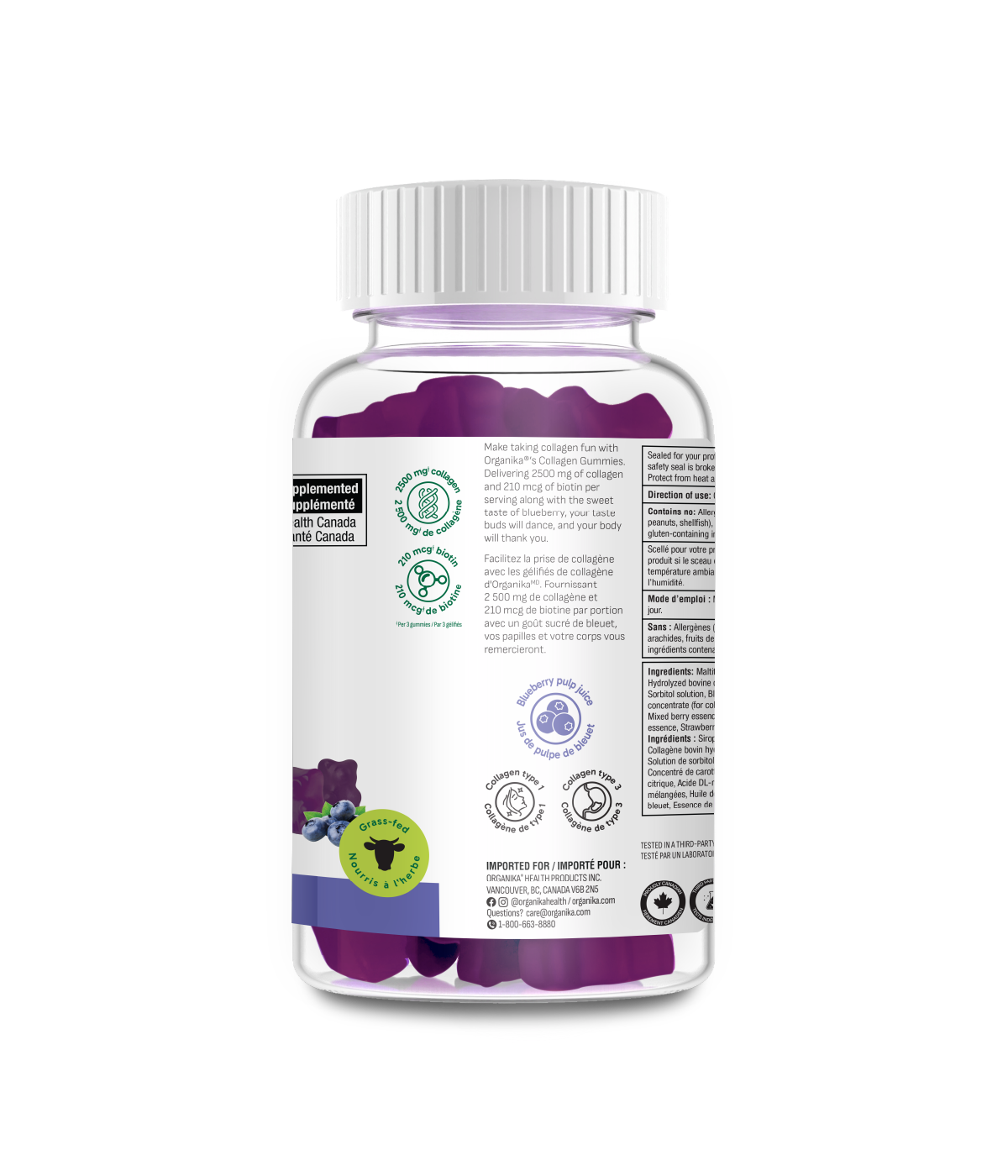




-
NewIs this right for you?

-


-


-

-

-

-

Collagen Gummies
Your collagen support in a tasty gummy + extra beauty support
- Promotes healthy skin, hair, and nails
- Helps reduce joint pain linked to osteoarthritis
- Supports bone density and healthy digestive linings
- Conveniently chewable and tasty
Impossible de charger la disponibilité du service de retrait



Notify Me When Available
Enter your email and we'll let you know as soon as this product is back
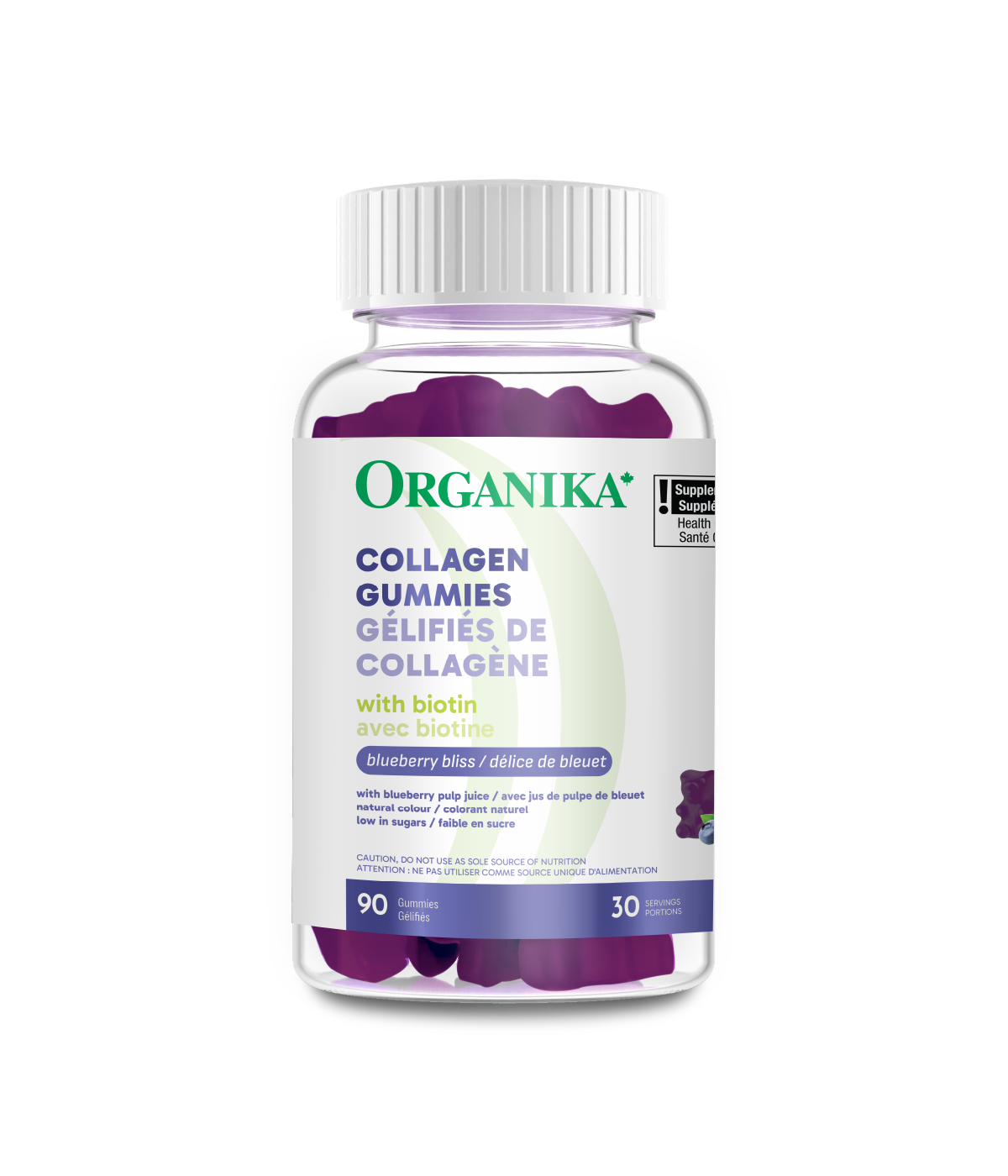
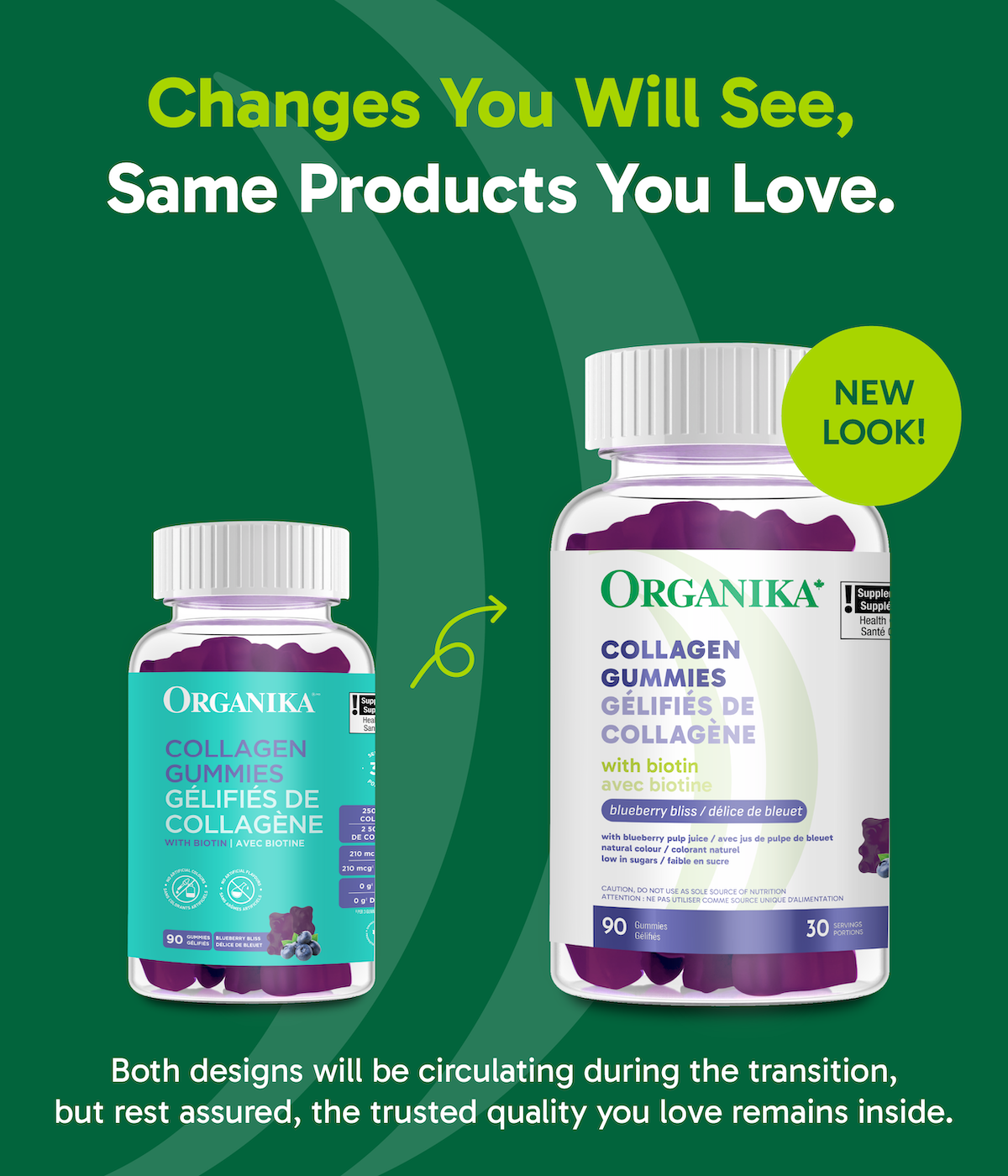
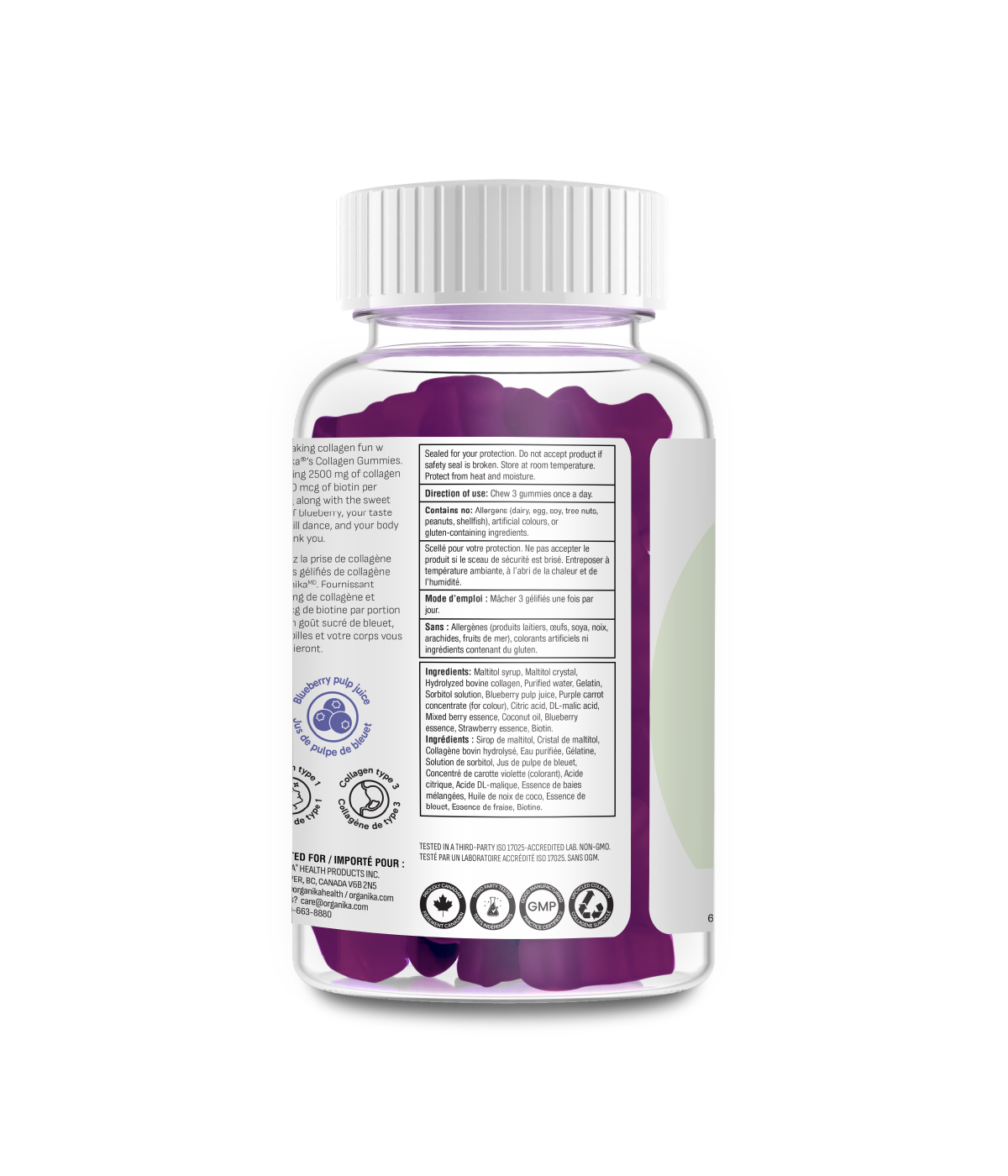
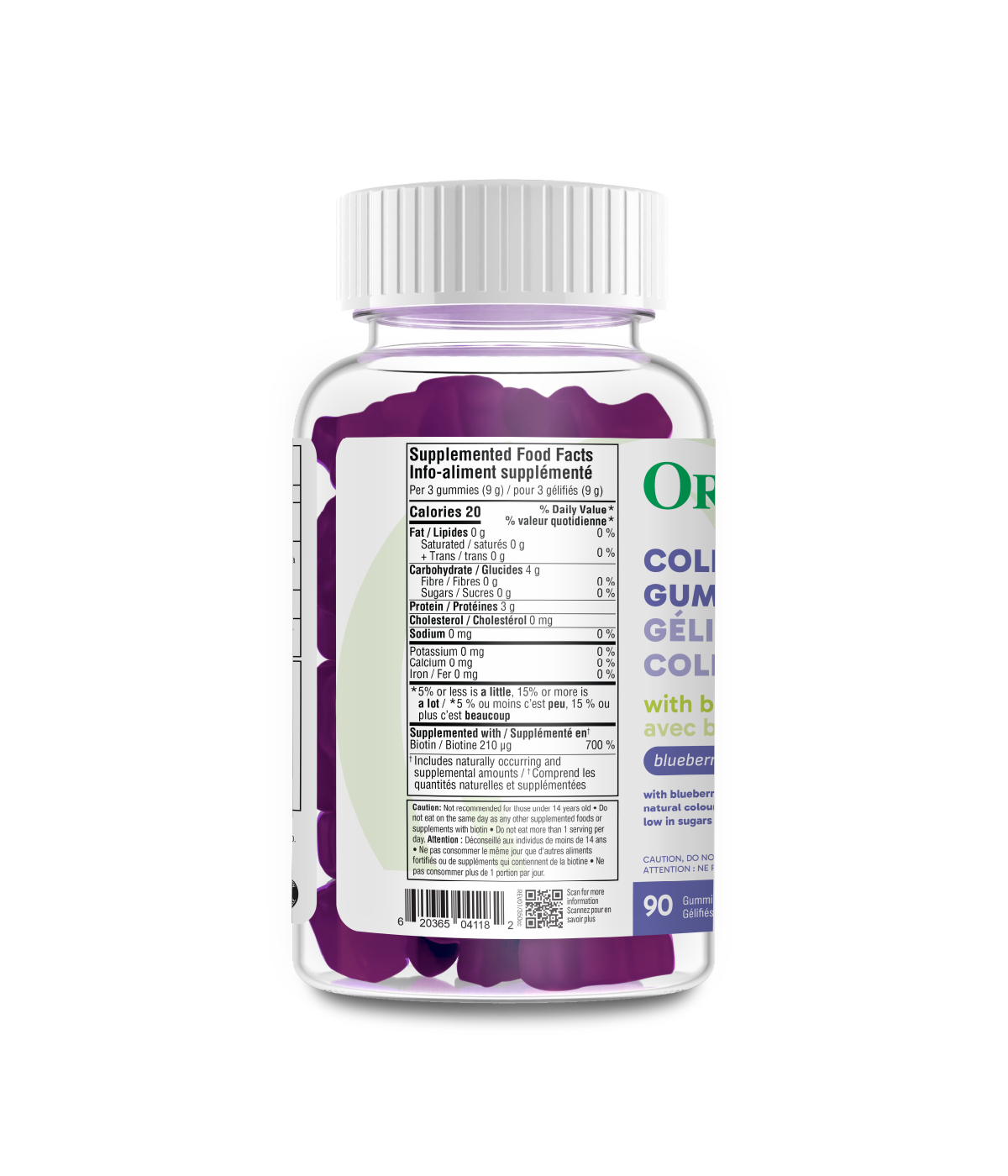
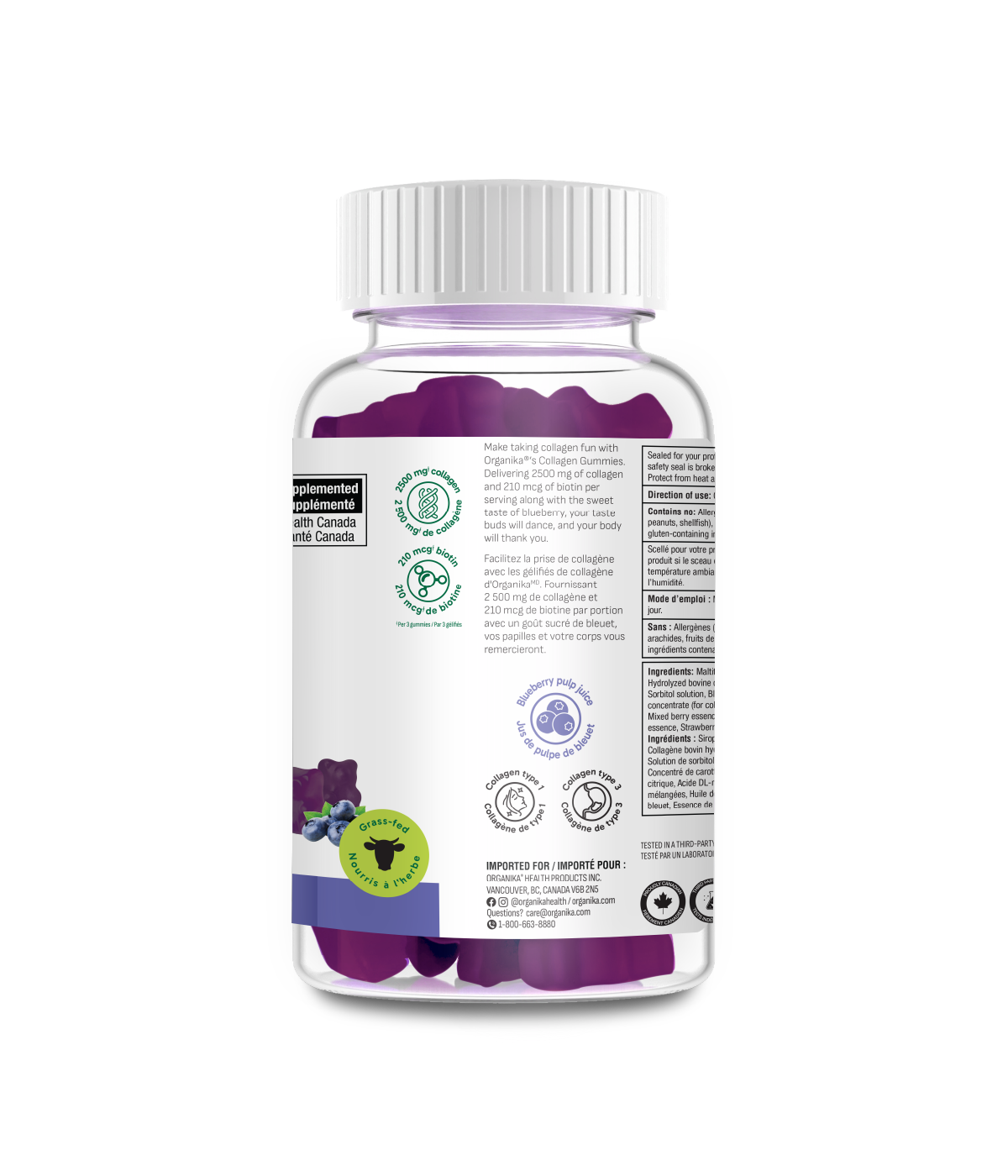





Supplement Facts





Ingredients & Nutrition
NON-MEDICINAL INGREDIENTS: Maltitol syrup, Maltitol crystal, Hydrolyzed bovine collagen, Gelatin, Sorbitol solution, Blueberry pulp juice, Purple carrot concentrate (for colour), DL-malic acid, Citric acid, Blueberry juice concentrate, Vegetable oil, Biotin
How to Use: Chew 3 gummies once per day.

Is This Right for You?
Want support for joints, skin and muscle?
Dealing with joint stiffness or skin changes?
Are you experiencing brittle nails, thinning hair, or dull skin?
Do you struggle taking collagen in powder or liquid form?
If you answered ''yes'' to any of the above, this product is right for you.

-
Helps reduce joint pain linked to osteoarthritis
-
Supports bone density and healthy digestive linings
Ingredients & Nutrition
Recommend For
Want support for joints, skin and muscle?
Dealing with joint stiffness or skin changes?
Are you experiencing brittle nails, thinning hair, or dull skin?
Do you struggle taking collagen in powder or liquid form?
If you answered ''yes'' to any of the above, this product is right for you.
Gluten-Free
Caffeine-Free
No Preservatives
Non-GMO
No Artificial Sweeteners
No Artificial Colours or Flavours
These gummies deliver key nutrients to support skin, joints and overall wellness in a convenient, tasty format that fits any routine.


The Full Scoop

-
Helps reduce joint pain linked to osteoarthritis
-
Supports bone density and healthy digestive linings
Nourish your skin, hair, nails and joints with targeted support for tissue strength and regeneration. Each 3-gummy serving delivers 2,500 mg of hydrolyzed bovine collagen and 210 mcg of biotin to support healthy hair growth and skin resilience. They're low in sugar, free from artificial colours and taste like real blueberries.
This collagen is hydrolyzed, meaning it's broken down so your body can absorb and use it easily. It plays a big role in keeping your skin smooth, your joints comfortable and your nails strong.
As your body makes less collagen with age, a daily boost can help you stay ahead of the curve. Biotin adds extra support for brittle nails and thinning hair.
Ask Away
We’ve got the FAQs covered. But if you’re still stuck, we’re only a message away.
Get in TouchWhat are the main benefits of taking Organika Collagen Gummies?
Collagen and Biotin for skin, hair, and nail health.
How much collagen is provided per serving?
2.5 g collagen.
Are Organika Collagen Gummies suitable for people with gluten intolerance?
Yes, they are gluten-free.
Do these gummies contain any nuts or peanuts?
No.
Are Organika Collagen Gummies safe for people with shellfish allergies?
Yes.
What is the type of collagen in these gummies?
Bovine collagen.
How should Organika Collagen Gummies be stored?
They should be stored at room temperature.
What is the source of vegetable oil?
Palm oil.
What does Sorbitol solution mean?
Sorbitol in liquid.
Why is it suggested to not exceed more than 1 serving per day?
This product is under supplementary food category, where the suggested intake of Biotin is no more than 219 mcg per day (3 gummies = 210 mcg).
You'll Likely Also Love...
O1
Get 53 powerful ingredients in every bottle—an all-in-one daily health solution
Liposomal Vitamin C
A highly absorbable form of Vitamin C to support immunity and more
Enhanced Collagen Protein Pure Beauty
A collagen blend with added beauty benefits for healthier skin, hair and nails
Enhanced Collagen Protein Pure Beauty Tablets
A collagen blend with added beauty benefits for healthier skin, hair and nails—in tablet form
Support Beyond Products
Now that you know you need collagen, get the details about how much you need daily for maximum benefits. Collagen, often hailed as the elixir for youthful skin, has gained extensive popularity in the health and wellness world. If you’ve ever wanted to improve your skin, hair, bones, cartilage, you’ve likely come across collagen as a liquid or powder supplement. Many individuals are eager to incorporate collagen into their daily routines, but a common question prevails: "How much collagen should I take daily?" Let’s explore the optimal daily intake of collagen and how often you should be taking collagen supplementation to notice its effectiveness and potential benefits to your health. How Much Collagen Should I Take Per Day? When it comes to how much you should consume, studies suggest that a daily collagen intake of 2.5 to 15 grams is both safe and effective in promoting skin elasticity, hydration, and overall joint health (Choi et al., 2019). While eating high-collagen foods are great for health, supplementation helps meet your needs with ease. Is There a Minimum or Maximum Number of Collagen To Show Benefits? It’s important to recognize that the recommended daily intake of collagen is dependent on an individual’s specific needs and varies from person to person. Again, while there is no established Recommended Dietary Allowance (RDA) for collagen, research indicates that 2.5 to 15 grams of hydrolyzed collagen per day may contribute to overall health and well-being, depending on factors such as age, lifestyle, and specific health goals. There is currently no documented maximum intake of collagen. In addition to supplementation, making positive lifestyle changes can significantly impact your body’s natural collagen production. Smoking, neglecting sun protection or not getting enough sleep will work against your body’s ability to make collagen. Consistency is Key with Collagen Collagen turnover is a slow process. As such, no matter your goal for using collagen, it will take at least 8 weeks to experience noticeable results (Choi et al, 2019). Most studies use a minimum of 8 weeks to assess collagen’s effects on skin health and joint pain relief, but other studies use longer periods, even up to 12 months, to see an effect for bone health (König et al, 2018). When it comes to achieving health goals, consistency is key - and that’s no different with taking collagen. Since collagen is a structural protein that forms the building blocks of our skin, hair, nails, and connective tissues, taking it daily can contribute to maintaining these structures and supporting their optimal function over time. For more in depth details on the benefits of taking collagen daily, check out this blog: What is Collagen? Health Benefits & More. The Bottom Line The optimal daily intake of collagen varies from person to person, but a range of 2.5 to 15 grams per day is considered effective for many people. While there is no established RDA, having a consistent daily intake of collagen will be most helpful to see tangible results. Whether you're aiming to enhance skin radiance, support joint health, or strengthen hair and nails, incorporating collagen into your daily routine could be a key factor in achieving your wellness goals. FInd your perfect collagen match with this 2 minute quiz. References Choi FD, Sung CT, Juhasz ML, Mesinkovsk NA. Oral Collagen Supplementation: A Systematic Review of Dermatological Applications. J Drugs Dermatol. 2019 Jan 1;18(1):9-16. PMID: 30681787. König D, Oesser S, Scharla S, Zdzieblik D, Gollhofer A. Specific Collagen Peptides Improve Bone Mineral Density and Bone Markers in Postmenopausal Women-A Randomized Controlled Study. Nutrients. 2018 Jan 16;10(1):97. doi: 10.3390/nu10010097. PMID: 29337906; PMCID: PMC5793325.
read moreHydrolyzed collagen has been a popular ‘go to’ in the health food industry for some time now. With so many claims to healing qualities such as improved skin health, relief from joint pain and supporting heart health, collagen has become a staple in many people’s daily lives. The benefits of collagen, internally and externally, seem to be noticed by collagen users... all by adding this simple protein into their daily routine. While we talk a lot about details and types of collagen, and how to use it... let’s get back to the basics. So, what exactly is collagen? LET'S START AT THE BOTTOM AND BUILD UP You may have heard of amino acids. They are the small building blocks that, when added together, create protein. Common amino acids such as lysine, glutamine, and tryptophan play specific roles all around the body. For example, tryptophan helps us build serotonin, our ‘happy hormone’. When you string together a series of different amino acids, we get protein. Protein is needed for growth, repair, immune system support and all-around structural support. COLLAGEN IS A TYPE OF PROTEIN Amino acids that make up collagen are arginine, glycine, glutamine, hydroxyproline and more. The amino acid content in collagen directly influences proper building and growth. Our bodies are made up of collagen. Collagen makes up most of our skin, tendons, ligaments and muscles. We can find collagen in our bones for strength, as well as in the walls of our arteries for that elastic stretch with blood pressure change. Collagen is abundant in the human body. WHY DO PEOPLE TAKE COLLAGEN? When we take a collagen product, we may notice a difference in how fast our hair or nails grow. Some individuals notice a difference in their skin such as less breakouts or more tightness and reduced fine lines. When we see the effects at such a superficial level, it is easy to understand and recognize the internal healing qualities and benefits of collagen, skin rejuvenation is just a fantastic bonus! There are numerous reasons to take collagen. Below are just a few benefits of collagen and reasons why more and more individuals choose to supplement with this super food. Supporting the aging process Aging, stress and activity all require adequate amounts of protein in an individual’s diet. Out of all the macro nutrients, (carbohydrates, fats and proteins), protein seems to be the most lacking in the North American diet. When there is not enough protein in the diet, body tissues break down faster, the aging process speeds up and we are not able to recover as quickly as we should. Our immune system needs protein to function If you tend to get sick often, you should consider increasing the amount of protein in your diet to help build immunity. The amino acids found in collagen will directly increase the number of immune cells that help you stay healthy by combating bacteria and viruses. The protein that makes up collagen is like that of bone broth, hence the reason one should consume bone broth or collagen when sick to aid in quicker recovery. Joint health Collagen protein directly contributes to the health of our joints. As we age, train and move, our joints become stressed. It is important to take care of our joints with rest, recovery and proper nutrition. Daily consumption of a collagen supplement can contribute to the integrity and structure of joints. Graceful aging There are many factors that contribute to an overall youthful look. Staying hydrated and consuming healthy fats is key when it comes to the beauty of your skin. Adding a collagen supplement daily will contribute to the growth of collagen all around your body, noticeably the skin. Collagen is responsible for the elasticity and integrity of our skin. The timeline for results can vary for everyone, from 4 weeks or more. The results you will experience by adding this simple supplement to your diet is so worth the wait. Adding a clean and ethical source of collagen to your daily health regime can pay off in big ways! BE HAPPY, BE HEALTHY
read moreCollagen comes in many different varieties – it is, after all, the most abundant form of protein in our bodies! In this article, we’ll explore the three main types of collagen, their benefits, and how to choose the best one for you! Shop Collagen Are there different types of collagen? There are three main types of collagen that are found in the body: types 1, 2 and 3 – yes, it’s that simple! These 3 make up to 80-90% of collagen in the human body. While consuming any collagen is great for you, each type can provide different benefits to your body. Collagen type 1 Type 1 collagen is what we see in bovine collagen and marine collagen, and was named “Type 1 collagen” because it was the first collagen structure to be isolated and identified. Commonly, type 1 collagen is seen as the beauty collagen, and it is even nicknamed the fountain of youth! Collagen type 2 Chicken collagen is rich in type 2 collagen. This type is typically shown to best support joint health and reduce pain and inflammation because it is the main form of collagen found in cartilage. Current studies are looking at the benefits between type 2 collagen use and reduced rheumatoid and osteoarthritis pain. Collagen type 3 This collagen is commonly found with type 1 collagen, as we see in bovine sources and is found in hollow organs like blood vessels, the uterus, and our bowels. How to choose the best collagen for me? The two key factors to think about when purchasing a collagen supplement are: What are my dietary preferences (i.e., pescatarian or vegan?) What is my goal in using collagen? If you are pescatarian or vegetarian/vegan, your decision is made quite easily for you as you’ll be utilizing a marine collagen or a combination of vitamins and amino acids that can help with your body’s natural production of collagen, like those in our Plant-based Collagen Booster. If you don’t have any dietary restrictions, then it’s about understanding what exactly you’ll be using your collagen for. Is it for better hair growth? Joint support? Gut health? Let’s break it down. What is the best type of collagen for hair growth? Fish-based collagens are typically best for beauty support, including hair, skin, and nail health. This is because it contains type 1 collagen and its small molecular size makes it the most readily absorbed by our body. Salmon collagen has two major benefits. First, it is sourced from salmon skin, a rich source of type 1 collagen that is easily absorbed by the body. In addition, salmon is high in omega-3 fatty acids, which are important to help reduce inflammation. Some conditions where we see hair loss or thinning hair are also associated with higher levels of inflammation. Marine Collagen powder is another excellent source of highly bioavailable type 1 collagen, the beauty collagen. In one study that used an oral combination of marine collagen, hyaluronic acid, and horsetail (found in our Hair Plus™), participants with perceived thinning hair saw an increase in hair growth. What is the best type of collagen for skin? Enhanced Collagen™ Vitality combines matcha powder with our Enhanced Collagen™ powder to provide a double dose of skin support through collagen supplementation, and antioxidants to reduce free radical damage. Green tea, where matcha comes from, has been shown to be an excellent source of plant polyphenols that can help to protect the skin. What is the best type of collagen for joints? Biocell™ collagen combines type 2 collagen from chicken, hyaluronic acid, and chondroitin sulfate to support your joint health. Hyaluronic acid works to keep the space between your bones lubricated and reduce pain, while chondroitin sulfate is found in cartilage. Full Spectrum™ Collagen combines types 1, 2 and 3 collagen from marine, bovine, and chicken sources. What is the best type of collagen for gut health? Enhanced Collagen™ Original naturally contains the amino acid glutamine, which is known to support our intestinal walls and reduce intestinal permeability. As a bovine source of collagen, Enhanced Collagen™ contains both types 1 and 3 collagen, which have been shown to be abundant in our gut. Enhanced Collagen™ Relax can be optimal for the person who deals with extreme amounts of stress that affect the gut. L-theanine can help with glutamine metabolism. As well, Magnesium Bisglycinate is commonly used for its effects on stress, anxiety, and sleep, all of which can have a significant impact on our gut health. Shop Collagen Is collagen suitable for vegetarians? Plant-based Collagen Booster™ is Organika’s answer for vegans and vegetarians looking to increase their body’s collagen, without ingesting animal products. Our bodies naturally make collagen on its own, however supplementing is beneficial because our collagen production starts to slow down after the age of 25. Vegetarians and vegans can support their own collagen production by ingesting higher doses of vitamin C, as well as a variety of amino acids. By utilizing supplements that do this work for you, like with Plant Based Collagen Booster, you can support your body’s natural collagen production. References Lodish H, Berk A, Zipursky SL, et al. Molecular Cell Biology. 4th edition. New York: W. H. Freeman; 2000. Section 22.3, Collagen: The Fibrous Proteins of the Matrix. Available from: https://www.ncbi.nlm.nih.gov/books/NBK21582/ Prabhoo R, Billa J. “Undenatured collagen type II for the treatment of osteoarthritis: a review.” International Journal of Research in Orthopaedics, vol, 4, issue 5, pp. 684-689. Sept. 2018. Available from: https://www.ijoro.org/index.php/ijoro/article/view/798/0 Crowley, D et al. “Safety and efficacy of undenatured type II collagen in the treatment of osteoarthritis of the knee: a clinical trial.” International journal of medical sciences vol. 6,6 312-21. 9 Oct. 2009. Available from: https://www.ncbi.nlm.nih.gov/pmc/articles/PMC2764342/ Kuivaniemi H, Tromp G. “Type III collagen (COL3A1): Gene and protein structure, tissue distribution, and associated diseases.” Gene vol. 707 (2019): 151-171. Available from: https://www.ncbi.nlm.nih.gov/pmc/articles/PMC6579750/ Liu A et al. “Effects of l-theanine on glutamine metabolism in enterotoxigenic Escherichia coli (E44813)-stressed and non-stressed rats.” Journal of Functional Foods, Volume 64, 2020. Available from: https://www.sciencedirect.com/science/article/pii/S1756464619305948 Abbasi B et al. “The effect of magnesium supplementation on primary insomnia in elderly: A double-blind placebo-controlled clinical trial.” J Res Med Sci, 17(12):1161-9, Dec 2021. Available from: https://pubmed.ncbi.nlm.nih.gov/23853635/
read more





